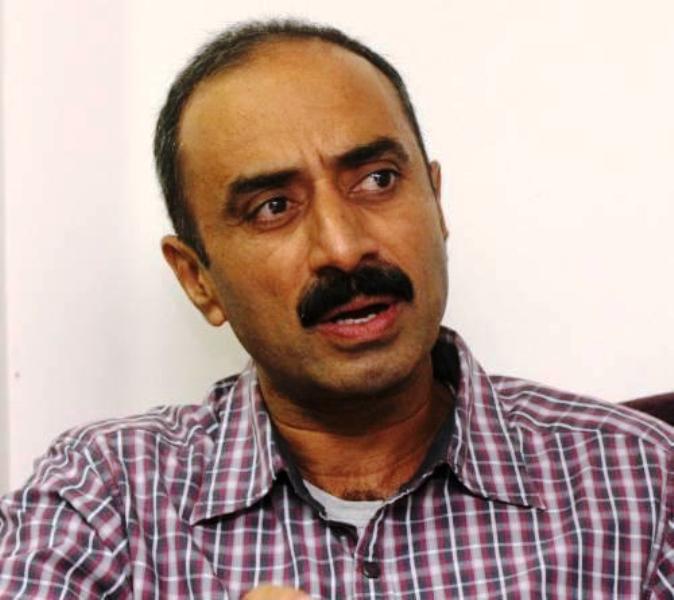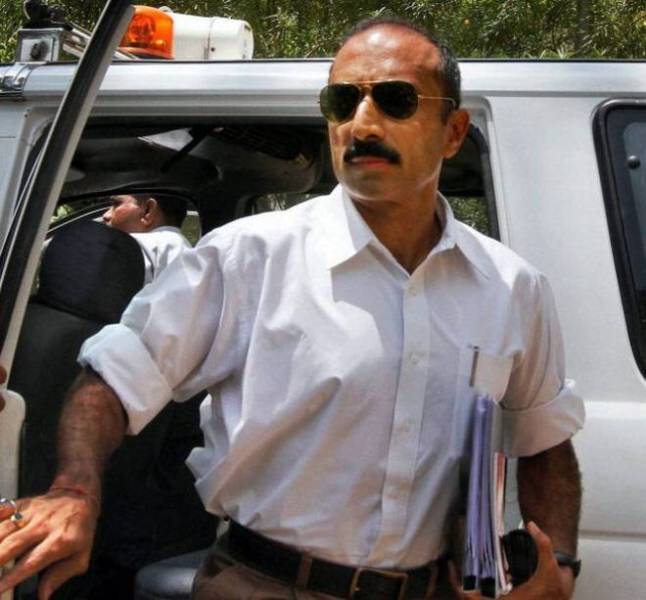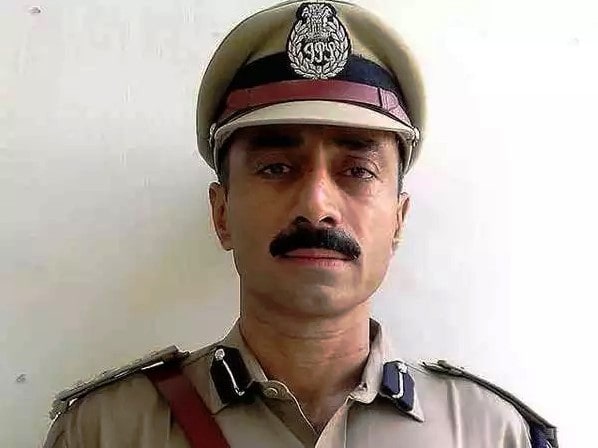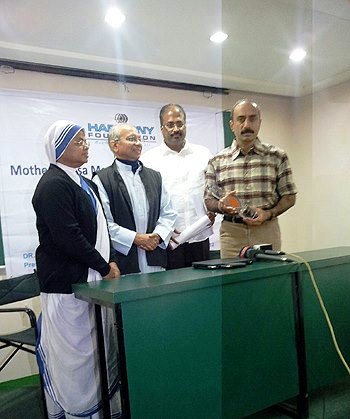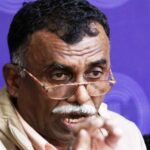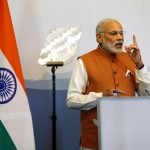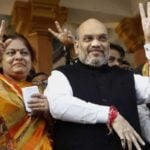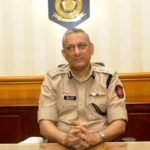Sanjiv Bhatt Age, Wife, Children, Family, Biography
| Bio/Wiki | |
|---|---|
| Full name | Sanjiv Rajendra Bhatt [1]Indian Kanoon |
| Profession | Ex-IPS Officer |
| Physical Stats & More | |
| Height (approx.) | 5' 8" (173 cm) |
| Eye Colour | Black |
| Hair Colour | Salt & Pepper |
| Civil Service | |
| Service | Indian Police Service |
| Batch | 1988 |
| Cadre | Gujarat |
| Major Designation(s) | 1990: Additional Superintendent of Police of Jamnagar district, Gujarat 1996: Superintendent of Police (SP) of Banaskantha district, Gujarat 1999-2002: Deputy Commissioner of Intelligence in the State Intelligence Bureau at Gandhinagar, Gujarat 2003: Superintendent of Sabarmati Central Jail |
| Personal Life | |
| Date of Birth | 21 December 1963 (Saturday) |
| Age (as of 2024) | 61 Years |
| Birthplace | Mumbai, Maharashtra |
| Zodiac sign | Sagittarius |
| Nationality | Indian |
| Hometown | Ahmedabad, Gujarat, India |
| School | St. Xaviers High School, Loyola Hall, Ahmedabad |
| College/University | IIT Bombay |
| Educational Qualification | M.Tech (1985) [2]Firstpost |
| Religion | Agnostic [3]Sanjiv Bhatt’s official Facebook account |
| Ethnicity | Kashmiri Pandit [4]Sanjiv Bhatt’s tweet |
| Political Inclination | Indian National Congress |
| Address | Bungalow No-2, Sushil Nagar Society, Part 2, Memnagar, Drive In Road, Ahmedabad – 380052 |
| Controversies | • Accused of custodial death: In 1990, communal riots broke out in Jamnagar amid LK Advani's rath yatra in the city. IPS Sanjiv Bhatt was posted as an Assistant Superintendent of Police (ASP) in the city during the riots. In order to control the masses, the Jamnagar police, under the leadership of Sanjiv Bhatt, took 150 people under preventive custody to restore peace in the town. Out of the 150 people in the custody, Prabhudas Vaishnani was one of the detainees, who, after being released from custody in 1990, died in a hospital due to multiple organ failures. In the same year, his younger brother, Amrutlal Vaishnani, lodged an FIR against Sanjiv Bhatt and six other police officers, accusing them of battering Prabhudas while he was in the Jamnagar police's preventive custody. Amrutlal further claimed that his elder brother was tortured and beaten mercilessly by the police force. He also stated in his FIR that Prabhudas was threatened by Bhatt and his fellow policemen against lodging a complaint regarding the issue. In an interview, Amrutlal told the media, "My brother was beaten with rifle butts, asked to crawl on their elbows and made to do situps. They were not given water or medical attention. Prabhudas’s kidney was damaged because of custodial torture. Bhatt and other cops threatened him to not talk about the torture. CID Crime, which probed the case, had concluded that Prabhudas Vaishnani had died because of inhuman torture.” [5]The Times of India Before Bhatt's affidavit in 2011 against the Gujarat government's alleged role during the 2002 Gujarat riots, the state government, in a favour to Bhatt, had made an appeal to the Gujarat High Court to absolve Sanjiv Bhatt and five other policemen of their crimes. After filing a petition against the Gujarat government, the state government, in response, charge-sheeted the accused policemen under the police atrocities case of 1990. Giving its judgement, the Supreme Court, in 2019, charged the accused police officers with first-degree murder and handed life imprisonment to Sanjiv, while the remaining five policemen, Sub-Inspectors Dipak Shah and Sailesh Pandya, and Constables Pravinsih Jadeja, Anopsinh Jethva, and Keshubha Jadeja, were given two years each in jail. [6]The Hindu • Charged with framing a false narcotics case: While posted as a Superintendent of Police (SP), in 1996, in the Banaskantha district of Gujarat, Sanjiv Bhatt was accused of falsely planting contraband in the hotel room of a Rajasthan-based lawyer, Sumer Singh Rajpurohit. In a charge sheet filed by the Rajasthan Crime Branch, it named IPS Sanjiv Bhatt, R. R. Jain (a former judge of the Gujarat High Court), and his uncle, Phootarmal, of plotting against the lawyer by planting 1.15 kilograms of opium in his hotel room. The Rajasthan BAR council and former BJP's MP from Pali, Pushp Jain, came out in support of the lawyer. They accused the trio of harassing Sumer because he had a shop in the Vardhaman Market, a posh area in Pali, which the trio wanted to be vacated and handed over to them. During an interview, Jain said, "To get his shop vacated, the judge, his uncle Phootarmal and the IPS officer kidnapped and implicated Rajpurohit in April 1996.” Sanjiv was further accused of delaying the case in the Supreme Court by filing a total of forty affidavits. The Rajasthan BAR council, in its statement, accused Sanjiv Bhatt of appointing himself as the presiding officer in the case by the Gujarat government to fight his personal case on the state government's expenditure. On 5 September 2019, Sanjiv Bhatt was taken into custody by the police on the charges of falsely framing Sumer Singh Rajpurohit in a narcotics case. [7]The Times of India [8]Indian Kanoon On 28 March 2024, a court in Banaskantha district of Gujarat sentenced him to 20 years in jail after he was held guilty of falsely implicating Sumer Singh Rajpurohit by planting commercial quantities of opium in a hotel room. [9]The Print • Accusing the Modi-led Gujarat government: After the 2002 Gujarat riots, Sanjiv Bhatt, while serving as a Deputy Commissioner in the state's Intelligence Bureau, was summoned by the Nanavati-Mehta Commission as well as the Concerned Citizens Tribunal, established by a few human rights NGOs. In his testimonial against the Gujarat government, Sanjiv claimed that on 27 February 2002, an emergency meeting was called by the then CM of Gujarat, Narendra Modi, at his residence, where he told the high-ranking police officials, including Sanjiv, not to take any actions against the rioters. Sanjiv further claimed that the CM told the police officers not to “get in the way of Hindu backlash” and “allow the Hindus to vent their anger” to “teach the Muslims a lesson.” In 2002, before his assassination, former Home Minister of Gujarat Haren Pandya submitted a list to the Nanavati-Mehta Commission, containing the names of the police officials present at the meeting. The list did not contain the name of Sanjiv Bhatt. Based on the evidence presented, the Nanavati-Mehta Commission, in its judgement, observed, "On consideration of the evidence, it clearly appears that Bhatt is not telling the truth with regards to what happened in the meeting held on February 27, 2002, at the CM’s residence. Claims made by him of being present in the meeting appear to be false.” In 2011, Sanjiv filed a litigation in the Supreme Court in which he once again claimed to be present in the meeting at the CM's residence in 2002. [10]The Hindu In his litigation, he accused Narendra Modi of deliberately allowing the parading of the dead bodies of the killed Hindu pilgrims through the streets of Ahmedabad. He also claimed that the CM allowed hate speeches to be delivered by the members of Vishwa Hindu Parishad (VHP) and the Bajrang Dal. Bhatt, in his litigation, claimed that he had briefed the then CM of Gujarat about the threat looming over the life of Congress' former MP Ehsan Jafri, who, later on, was killed in a mob attack during the 2002 Gujarat riots. Sanjiv, in an interview, claimed, "It was sought to impress upon the Chief Minister (Modi) by me that as per intelligence information, there was a large-scale mobilisation of the Sangh Parivar cadre in major cities as well as in far-flung rural areas of the state. (Then) DGP K. Chakrabarthy and city Police Commissioner P.C. Pande had presented the case before Modi that they were extremely short of manpower in order to meet the situation of Gujarat bandh called by VHP (on February 28, 2002). It was further conveyed that in the case of communal violence, state police resources would be stretched and become ineffective.” [11]India Today • Accused of threatening witnesses: In the litigation filed by Sanjiv Bhatt in 2011 in the Supreme Court, he stated that six witnesses could testify in the court regarding his presence in the meeting at the CM's residence. One of the witnesses he named was his official driver Constable K. D. Panth. Panth, who, on 24 June 2011, lodged an FIR against Sanjiv Bhatt. He accused Sanjiv of forcing him to testify in his favour in the court of law. He further accused Sanjiv of taking him to the then Congress' Gujarat state President, Arjun Modhwadia, who threatened Panth of facing dire consequences if he would not obey Sanjiv. [12]Firstpost On 30 December 2011, Sanjiv was arrested by the Gujarat police. In his defence, Sanjiv told the court that Panth was acting on the gestures of the Gujarat government. Clarifying the issue, Panth rejected Bhatt's claim and stated, "I have reported the incident in the FIR that I was made to sign the affidavit by the wrong means. And I have mentioned everything in the FIR. I have lodged the FIR (First Information Report) based on the situations I have been through and on whatever I faced. Therefore, there is no question of any pressure from anyone.” [13]Deccan Herald • Alleged hacking of email account: Following Sanjiv Bhatt's arrest in 2011, Tushar Mehta, who, in 2002, was the Advocate General of Gujarat, accused Sanjiv Bhatt of hacking his private email account. In retaliation, Bhatt accused Tushar Mehta of phishing highly confidential information and data collected by the SIT, constituted by the Supreme Court, to Gujarat's state authorities. Sanjiv Bhatt's wife, Shweta Bhatt, in the defence of her husband, claimed that Sanjiv had gained access to Tushar's email account to book a vacation for Tushar and his family as the latter did not know how to operate a computer. Sanjiv Bhatt, in 2015, filed a litigation in the Supreme Court, demanding an independent inquiry into the issue as he believed the FIRs, filed by his driver and Tushar, to be politically motivated. [14]Hindustan Times • Accusing the SIT of misconduct: To investigate the incidents that occurred during the 2002 Gujarat riots, the Supreme Court, in 2008, constituted a Special Investigation Team (SIT). After conducting its investigation, the SIT submitted its findings to the Supreme Court in 2010. In the same year, Raju Ramachandran was appointed by the apex court as its Amicus Curiae (advisor to the court). In 2010, Raju Ramachandran found several disparities in the report filed by the SIT. He also quoted Sanjiv Bhatt's claim of being present in the meeting in 2002 to be correct. In his report, the Amicus Curiae stated, "In my opinion, despite the aforesaid background, it does not appear very likely that a serving police officer would make such a serious allegation against Mr. Modi, the Chief Minister of the State, without some basis. There is no documentary material of any nature whatsoever which can establish that Shri Bhatt was not present in the meeting on 27.02.2002.” In 2011, filing litigation in the Supreme Court, Bhatt accused the SIT of protecting the Gujarat government by tampering with the evidence. He also claimed that the SIT had been sending emails with confidential data in them to Tushar Mehta. Talking about it, Bhatt said, "I happened to access Mehta’s account to do some ticket and hotel bookings for their vacations, one to Goa in September 2009 and another to the US in May-June 2010, when I saw emails from the SIT probing Godhra, in his inbox.” Levying more allegations against the SIT, Bhatt claimed that the SIT on numerous occasions had tried to hack into his email account with the intent of leaking information about him to state authorities. In 2011, in its judgement over the allegations, the apex court quashed Bhatt's claims by declaring them as “false, misleading, and baseless.” The court also stated that the "former IPS officer did not come to the court with clean hands" and that he had sent several emails to the activists of Narmada Bachao Andolan in which he had revealed his nefarious designs on making the delivery of the judgement by the Supreme Court's panel difficult. In its judgement, the court observed, "The contents of the e-mail exchanged by Bhatt, who was a high ranking officer, with an activist of Narmada Bachao Andolan (NBA) in which he has “mentioned to create a situation so as to make it difficult for a 3-Judge Bench of this Court to disregard shortcomings of SIT and exerting pressure by the groups and opinion makers in Delhi.” [15]The Economic Times • Inactivity of the law enforcement authorities: In an affidavit filed by Sanjiv Bhatt in 2012 in the Supreme Court, he claimed to have detailed information about the deployment of the Rapid Action Force (RAF), and the State Reserve Police Force (SRPF). He accused the Modi-led state government of knowingly deploying the law enforcement agencies in areas, where they could not have done much to control the riots. He also accused the state government of deliberately delaying the deployment of the Indian Army to contain the riots. Bhatt further claimed that the police force, acting on the gestures of the state, did not arrest people under preventive custody, which could have stopped the widespread riots in the state. Sanjiv Bhatt wrote a letter to the SIT over the issue. In his letter, he stated, "Please find… copies of some relevant documents which should convince you that for some inexplicable reason, Ahmedabad City Police were exceptionally lax in making preventive arrests on February 27, 2002, despite the anticipated likelihood of widespread retributory violence.” • Accusing the state government of killing Haren Pandya: Haren Pandya was the former Home Minister of Gujrat who was assassinated on 26 March 2003 while he was out on a morning walk. In 2011, Bhatt claimed that when he was posted as the Superintendent of the Sabarmati Central Jail, in 2003, he came across Asgar Ali, who was later accused of planning the murder of Haren Pandya. Bhatt told the court that according to Asgar, the former Home Minister was shot and killed by a man named Tulsiram Prajapati, who was killed in a fake encounter by the Gujarat police in 2006. Sanjiv, in his accusations, claimed that when he told Amit Shah about the revelation, he asked him to immediately destroy all the evidence he had collected so far, and when Bhatt refused to do so, he was transferred from the jail. In his litigation, Bhatt claimed, "Failing to persuade me either to withdraw my report or destroy the very important documentary evidences regarding the role of certain highly placed State functionaries/politicians and senior police officers in the killing of Haren Pandya, I was removed from the post of Superintendent of Police in-charge of the Sabarmati central jail and was kept without a posting for over two-and-a-half months.” [16]The Hindu • Supreme Court's verdict on his allegations: After conducting a trial over the allegations levied by the former IPS officer, on 13 October 2015, a Supreme Court panel, comprising of Chief Justice H. L. Dattu and Justice Arun Mishra, delivered its judgement. In its verdict, the panel observed that Sanjiv Bhatt had collaborated with some political parties as well as certain NGOs and some civil rights activists. The panel also stated that the former IPS officer had presented false evidence in the court of law against Prime Minister Narendra Modi, and he had indulged in unprofessionalism by playing in the hands of a few with vested interests. The apex court, in its judgement, concluded, "The exchange of emails which are self-explanatory indicates that the petitioner was in active touch with leaders of the rival political party, NGOs, and their lawyers tried to play the media card and was being tutored by NGOs. The manner in which he acted is apparent from the aforesaid emails and need not be repeated. Petitioner had probably forgotten that he was a senior IPS officer. Thus the entire conduct of the petitioner indicates that he was not acting bona fide and was catering to interests elsewhere. Even if we ignore his antecedents vividly mentioned in reply of SIT for time being, his aforesaid conduct does not inspire confidence.” • Accused of framing PM Modi: The Supreme Court, in June 2022, rejected joint litigation filed by Teesta Setalvad, R. B. Sreekumar, Sanjiv Bhatt, and Zakia Jafri. In its judgement, the court stated that Bhatt, Setalvad, and Sreekumar played with the emotions of Zakia Jafri, a 2002 Gujarat riots victim. The court with its verdict quashed all the allegations levied by Sanjiv Bhatt on the Prime Minister. The court further stated that the litigation was filed by the former IPS officer with malafide intentions and for personal gains. The Anti-Terrorist Squad of the Gujarat police lodged an FIR against the former IPS officer for presenting "false and misleading evidence" against the PM. The FIR was registered under Sections 468, 471 (forgery), 194 (giving or fabricating false evidence with intent to procure conviction of capital offence), 211 (institute criminal proceedings to cause injury), 218 (public servant framing incorrect record or writing with intent to save a person from punishment or property from forfeiture), and 120 (B) (criminal conspiracy) of the Indian Penal Code. [17]LawBeat In its official verdict, the Supreme Court observed, "At the end of the day, it appears to us that a coalesced effort of the disgruntled officials of the State of Gujarat along with others was to create a sensation by making revelations which were false to their own knowledge. The falsity of their claims had been fully exposed by the SIT after a thorough investigation. The present proceedings (by Zakia Jafri) have been pursued for the last 16 years including with the audacity to question the integrity of every functionary involved in the process of exposing the devious stratagem adopted, to keep the pot boiling, obviously, for ulterior design. As a matter of fact, all those involved in such abuse of process, need to be in the dock and proceeded with in accordance with the law. For, persons not privy to the stated meeting, where utterances were allegedly made by the then Chief Minister, falsely claimed themselves to be eye-witnesses, and after thorough investigation by the SIT, it has become clear that their claim of being present in the meeting was itself false to their knowledge. We hasten to add that it is only because of the ultra-sensational revelation projected by Sanjiv Bhatt and Haren Pandya, who unabashedly claimed to be privy to the utterances made by the then Chief Minister in an official meeting, that the constitutional functionaries and this Court was required to move into action taking serious note of the same. But, after thorough investigation by the SIT, the falsity of such claim has been fully exposed on the basis of credible indisputable materials collated by the SIT during the investigation in that regard.” [18]The Indian Express On 13 July 2022, Sanjiv Bhatt was taken into custody by the SIT, and he was produced before a metropolitan court in Ahmedabad. The SIT arrested him on the charges of forging evidence, including a wireless alert message's transcript, which was produced by the former IPS officer before the Nanavati-Mehta Commission as a crucial piece of evidence against those accused of being involved in the 2002 Gujarat riots. [19]The Hindu |
| Relationships & More | |
| Marital Status | Married |
| Affairs/Girlfriends | Shweta Bhatt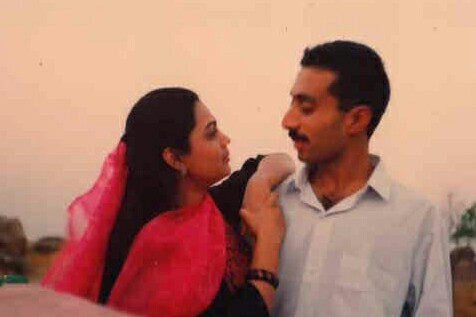 |
| Marriage Date | 31 December 1987 |
| Family | |
| Wife/Spouse | Shweta Bhatt (a member of the Indian National Congress)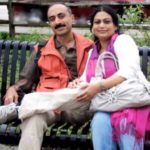 Note: In 2012, she contested the Gujarat assembly election against Narendra Modi from the Maninagar constituency in which she was defeated by a margin of 86,373 votes. |
| Children | Son- Shantanu Bhatt Daughter- Akashi Bhatt (doctor) 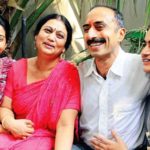 |
| Parents | Father- Rajendra Bhatt (worked as a manager at Hutheesing textile mill) Mother- Shakuntala Bhatt (doctor) 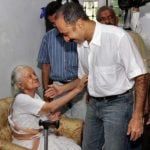 |
Some Lesser Known Facts About Sanjiv Bhatt
- In 1985, after completing his M.Tech from the Indian Institute of Technology (IIT) Bombay, Sanjiv Bhatt started preparing for the UPSC examination.
- In 1988, Sanjiv Bhatt cleared the UPSC examination and joined the Sardar Vallabhbhai Patel National Police Academy (SVPNPA) in Telangana. Later, in the same year, Sanjiv Bhatt was commissioned as an IPS in the Gujarat cadre.
- In 1990, Sanjiv Bhatt was given his first posting in Jamnagar as an Assistant Superintendent of Police (ASP).
- In the same year, there were protests amidst the senior BJP leader L. K. Advani‘s rath yatra through the city that led to an outbreak of communal violence in Jamnagar. Sanjiv Bhatt and the police force under his command took 150 people under preventive custody to stop the widespread violence in the city and to restore law and order in the city of Jamnagar.
- Sanjiv Bhatt was given a promotion in 1996, and he was made a Superintendent of Police (SP). After his promotion, he was posted to the Banaskantha district of Gujarat.
- In 1999, Sanjiv Bhatt was promoted to the rank of Deputy Commissioner, and he was sent to Gandhinagar to take charge of the state’s Intelligence Bureau (IB). As a Deputy Commissioner, Sanjiv was in charge of maintaining the security of the coastal areas, the internal areas of Gujarat, and the high-value state installations. He was also given the charge of the then Chief Minister of Gujarat Narendra Modi’s security. He remained in the state’s Intelligence Bureau (IB) till the end of the 2002 Gujarat riots.
- In 2002, after the end of the Gujarat riots, the National Commission for Minorities (NCM) accused the then CM of Gujarat, Narendra Modi, of mocking the high birth rate among the Muslim community in Gujarat, which, according to the commission, came under hate speech. The commission demanded that the state authorities should hand over Narendra Modi’s speech transcripts, as evidence of hate speech, to them. In response, the state denied having any records of the speech.
- In 2002, Sanjiv Bhatt and his senior R. B. Sreekumar presented a copy of the transcript before the commission, as a result of which, both Sanjiv and Sreekumar were shunted and sent on punishment postings by the Gujarat government. [20]Rediff.com A state IB officer, in an interview, said,
There were attempts by the state government to make the bureau withhold the cassette from the Intelligence Bureau headquarters in Gandhinagar to prevent it from becoming a part of the official records against the Chief Minister.”
- In 2002, after falling out of favour with the Gujarat government, Sanjiv Bhatt was sent on irrelevant postings. He was sent to the State Reserve Police Training College (SRPTC) in Junagadh in 2002, as a Principal.
- A few months later, in 2003, Sanjiv Bhatt was posted to the Sabarmati Central Jail as a Superintendent, where he, reportedly, made several efforts to improve the living conditions of the prisoners. He also became famous in the jail for introducing Gajar Ka Halwa, a dessert, for the inmates.
- Sanjiv Bhatt’s popularity among the prisoners grew more after he appointed the inmates, who were accused and were on a trial for the 2002 Godhra train incident, on the trial committee.
- Barely after two months after being posted as a Superintendent of the Sabarmati Central Jail, Sanjiv Bhatt, on 18 November 2003, was posted out of the jail by the state government. When the prisoners came to know of the transfer of the IPS, nearly 3000 inmates went on a hunger strike. During the hunger strike, six inmates slashed their wrists in protest, which lead to a riot-like situation in the jail. [21]The Times of India
- Sanjiv Bhatt could not make it to a higher rank because many departmental cases were pending against him. One of his colleagues, in an interview with The Indian Express, claimed that while Sanjiv was denied timely promotions, his batchmates from the 1988 cadre were given promotions, and many, by 2007, had become Inspector General of Police (IGP). He further stated,
The number of criminal cases and departmental inquiries he faced through various political regimes made him ineligible for any timely promotions. Meanwhile, all his colleagues from the 1988 batch of IPS are already IGPs.”
- In 2011, the Gujarat government suspended the IPS officer for remaining absent from duty for a prolonged period, without providing any prior information about the leaves to the authorities. He was also reprimanded for using his official vehicle for personal use. In his defence, Sanjiv Bhatt claimed that he could not report to duty, as he was being summoned, time and again, by the Nanavati-Mehta Commission (NMC), a committee which was established by the Gujarat government to probe the incidents about the 2002 Gujarat riots.
- In 2012, Sanjiv Bhatt wrote an open letter to Narendra Modi, accusing him of sacrificing his followers for his personal and political gains. He, in his letter, further accused the then CM of Gujarat of killing innocents to exert his power on the state. [22]Hindustan Times
- Sanjiv Bhatt was given an award for social activism in 2013. He was presented the Mother Teresa Memorial International Award for Social Justice by the Harmony Foundation.
- In 2015, after having served as an IPS officer for 27 years, Sanjiv Bhatt was removed from the service by the government due to an unauthorised absence from duty and failure to report before an inquiry committee.
Finally removed from service today after serving 27 years in the Indian Police Service. Once again eligible for employment. 🙂 Any takers?
— Sanjiv Bhatt (IPS) (@sanjivbhatt) August 19, 2015
- In an interview with The Indian Express, Swati Bhatt claimed that at a time when not many youngsters were enthusiastic about joining the police force as an officer, Sanjiv Bhatt was Gujarat’s first IPS officer, who was recruited from the state.
- Shweta Bhatt in an interview claimed that she met Sanjiv when they both were preparing for the UPSC examinations. The couple dated each other for a year and a half, before getting married. Sanjiv Bhatt’s wife, Shweta Bhatt, in an interview, claimed,
Sanjiv was determined to be a police officer. We courted for a year and then we got married in 1987 and I gave up my career.”
- Sanjiv Bhatt introduces himself as an Inspector General of Police (IGP) on social media.
- In 2018, the Ahmedabad Municipal Corporation (AMC) demolished the illegal parts of his bungalow. The action was taken by the AMC on the order of the Supreme Court. [23]The Times of India
- According to an interview given by his wife to The Indian Express, Sanjiv Bhatt is a fitness enthusiast, who goes on a 15 km run, every day.
References/Sources:

